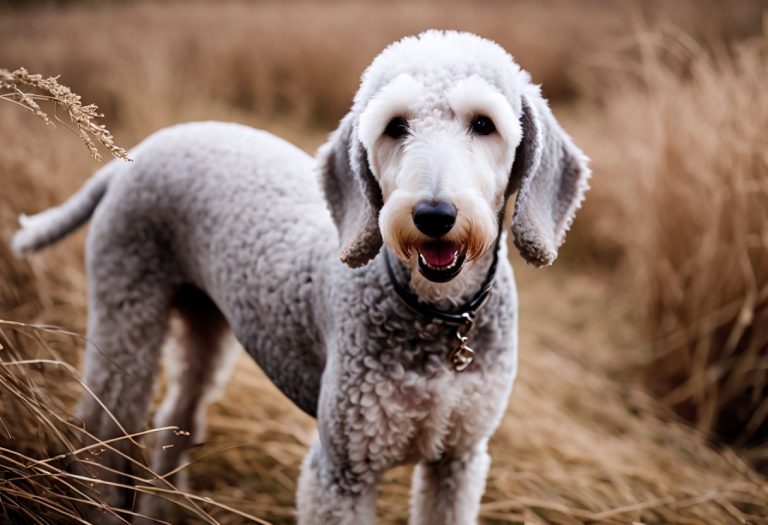FOX TERRIER: A Top Choice Dog
Discover the lively and intelligent Fox Terrier breed, known for its distinctive appearance and energetic nature.

The Fox Terrier is a breed of dog known for its lively and energetic nature, distinctive appearance, and keen intelligence.
Learn about the lively Fox Terrier breed, including its history as a fox-hunting companion and its modern role as a beloved family pet. Find out if this spirited companion is the right fit for your lifestyle.
History
The Fox Terrier’s history traces back to 19th-century England, where it was developed as a hunting dog specifically bred to assist in fox hunting. Hunters needed a dog that could locate foxes hiding in their dens, as well as pursue and flush them out into the open.
The breed’s small size, agility, and tenacity made it well-suited for this task. Over time, two distinct varieties emerged: the Smooth Fox Terrier, with its short, sleek coat, and the Wire Fox Terrier, with its wiry, rough coat. Both varieties shared the same hunting instincts and qualities but differed in appearance.
They gained popularity not only as working dogs but also as companions due to their friendly and lively nature. They were recognized by kennel clubs in the late 19th century and have since become cherished pets in households around the world, admired for their intelligence, loyalty, and playful demeanor. Today, Fox Terriers continue to excel in various canine sports and activities while also serving as loving family members.
Personality
Fox Terriers are renowned for their spirited and lively personalities. They are confident, bold, and always ready for adventure, making them ideal companions for active individuals and families.
These dogs are intelligent and curious, with a natural instinct for exploration and problem-solving. While they are affectionate and loyal to their family members, they also possess an independent streak and may exhibit a stubborn side at times.
They thrive on mental and physical stimulation and enjoy engaging in activities that challenge their minds and bodies, such as agility, obedience training, and interactive games. Despite their small size, these terriers have a big personality and are not afraid to assert themselves, making them charming and entertaining companions for those who appreciate their spirited nature.
With proper socialization and training, they can be well-behaved and loving pets, forming strong bonds with their human companions while always keeping them on their toes with their playful antics.

Physical Characteristics
Height
- Male 14-16 inches
- Female 13-15 inches
Weight
- Male 15-20 pounds
- Female 13-18 pounds
Coat
They have a distinctive double coat consisting of a dense, smooth or wiry outer coat and a softer undercoat.
Color
The main colors are:
- White with black markings
- White with tan markings
- White with brown markings
Eyes
They have dark, almond-shaped eyes that convey a lively and alert expression.
Ears
They have small, V-shaped ears that fold forward close to the head, giving them an attentive appearance.
Tail
The tail of this terrier is typically docked to a medium length and carried erect.
Life Span
The average life span is around 12-15 years.
Temperament
They are known for their lively, spirited temperament. They are bold, confident, and always ready for action, reflecting their heritage as hunting dogs. With their intelligence and curiosity, they are inquisitive explorers, eager to investigate their surroundings and engage in new experiences.
They are affectionate and loyal companions to their families, often forming strong bonds with their human counterparts. However, they also have a strong independent streak and may exhibit stubbornness at times, requiring patient and consistent training.
Despite their small size, these pets have a big personality and can be quite vocal, alerting their owners to any perceived threats or changes in their environment. They thrive on attention and activity, enjoying playtime and exercise with their loved ones. With proper socialization and training, they make delightful and entertaining pets, bringing joy and energy to any household.
Grooming
Grooming this dog requires regular attention to maintain their distinctive coat and overall appearance.
Some owners may also choose to trim their Fox Terrier’s coat to keep it tidy, though this is not necessary for the breed standard.
Additionally, both varieties should have their nails trimmed regularly to prevent overgrowth and discomfort, and their ears should be checked and cleaned to prevent wax buildup and ear infections. Bathing should be done as needed, using a mild dog shampoo to avoid stripping the coat of its natural oils.
Training
Training him requires patience, consistency, and positive reinforcement techniques. These intelligent and energetic dogs thrive on mental stimulation and enjoy learning new tasks and tricks.
Early socialization is essential to help them develop good manners and adapt to various environments and situations. Basic obedience training, such as teaching commands like sit, stay, come, and heel, lays the foundation for a well-behaved companion.
Positive reinforcement methods, such as treats, praise, and play, work best with them, as they respond well to rewards for good behavior. It’s essential to keep training sessions short and engaging to hold their attention and prevent boredom.
Additionally, providing plenty of opportunities for exercise and mental stimulation helps to channel their energy in a positive direction and prevent undesirable behaviors, such as excessive barking or digging. With consistency, patience, and a firm but gentle hand, they can become well-trained and obedient companions, enriching the lives of their owners with their intelligence, loyalty, and playful demeanor.

Exercise
Exercise is crucial for keeping this terrier healthy, happy, and well-behaved. These energetic and spirited dogs have a high activity level and thrive on daily physical activity. Providing regular exercise opportunities, such as brisk walks, runs, or play sessions in a fenced yard, helps to burn off excess energy and prevent boredom.
They also enjoy engaging in interactive games and activities, such as fetch, agility, or obedience training, which stimulate their minds and bodies. Incorporating variety into their exercise routine keeps them mentally stimulated and prevents them from becoming bored or restless.
It’s essential to ensure that they receive enough exercise to meet their needs, as lack of physical activity can lead to behavior problems such as excessive barking or destructive chewing. With regular exercise and plenty of opportunities for active play, Fox Terriers can lead healthy, balanced lives and make wonderful companions for active individuals and families.
Nutrition
Proper nutrition is essential for maintaining the health and well-being of him. Providing a balanced diet that meets their nutritional needs is key to ensuring they have the energy and nutrients they need for optimal health.
High-quality commercial dog food that is specifically formulated for small breed dogs is generally recommended for them. Look for products that list meat or meat meal as the first ingredient and avoid foods with fillers or artificial additives.
The amount of food to feed will depend on factors such as age, weight, activity level, and metabolism, so it’s important to monitor their weight and adjust their portions accordingly to prevent obesity.
Additionally, providing fresh water at all times is crucial to keep them hydrated. Some owners may choose to supplement their Fox Terrier’s diet with fruits, vegetables, or occasional treats, but these should be given in moderation and should not make up more than 10% of their daily caloric intake.
Health Concerns
They are generally robust and healthy dogs, but like all breeds, they may be prone to certain health concerns. Some of the common health issues that can affect them may include:
Legg-Calvé-Perthes disease
This is a condition that affects the hip joint, leading to degeneration of the femoral head and neck.
Luxating patella
This condition occurs when the kneecap dislocates from its normal position, causing lameness and discomfort.
Deafness
Some Fox Terriers, particularly white-coated ones, may be at risk of congenital deafness.
Lens luxation
This is a condition where the lens of the eye becomes displaced, leading to vision impairment or blindness.
Myasthenia Gravis
This is an autoimmune disorder that affects the muscles, causing weakness and fatigue.
Thyroid issues
They may be prone to thyroid problems such as hypothyroidism, which can affect metabolism and overall health.
Skin allergies
Some Fox Terriers may develop skin allergies or sensitivities, leading to itching, redness, and discomfort.
Bottom Line
The Fox Terrier is a lively and intelligent breed known for its distinctive appearance and energetic nature. Developed in 19th-century England for fox hunting, Fox Terriers have since become popular companion animals.
These terriers are spirited and confident dogs, with a bold personality and a strong desire for adventure. They require regular exercise, mental stimulation, and proper training to thrive. While generally healthy, Fox Terriers may be prone to certain health issues. With proper care and attention, Fox Terriers make delightful and loyal companions for active individuals and families alike.
FAQs (Frequently Asked Questions)
Q. Do they need a lot of attention?
They thrive on attention and companionship and may become bored or anxious if left alone for long periods, so they require regular interaction and stimulation.
Q. Are they good for apartment living?
While Fox Terriers can adapt to apartment living with sufficient exercise and mental stimulation, they do best in homes with a fenced yard where they can run and play freely.
Q. Are these terriers good for hunting?
Yes, they were originally bred for fox hunting and still retain their hunting instincts, making them excellent hunting companions for those interested in the sport.
Q. Are these breeds good for first-time dog owners?
They can be a good choice for first-time dog owners who are willing to invest time and effort into training and socialization.
Q. Do these dogs need a lot of mental stimulation?
Yes, Fox Terriers are intelligent dogs that thrive on mental stimulation, so providing them with interactive toys and engaging activities is essential to prevent boredom.
Q. Are they hypoallergenic?
No, they are not hypoallergenic and may not be suitable for individuals with allergies.
Q. Do these dogs need a lot of space?
While Fox Terriers can adapt to apartment living with sufficient exercise, they do best in homes with a fenced yard where they can run and play safely.
Q. Do they bark a lot?
They can be vocal dogs and may bark to alert their owners or express excitement, so proper training is essential to manage excessive barking.
Q. Are these terriers good watchdogs?
Yes, these terriers are alert and vocal dogs, making them excellent watchdogs who will alert their owners to any perceived threats.
Q. Do these hunting dogs get along with other pets?
With early socialization, Fox Terriers can get along well with other pets, but they may have a strong prey drive and may not be suitable for households with small animals.
Q. Are they good with children?
With proper socialization and supervision, they can be good companions for children, but they may have a tendency to be too energetic for very young children.






